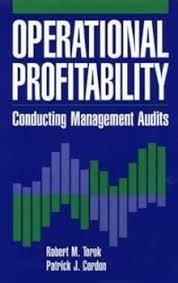Answered step by step
Verified Expert Solution
Question
1 Approved Answer
Audit Procedures for Professional Skepticism and Judgment: In auditing, professional skepticism refers to the attitude of questioning and critical assessment maintained by auditors throughout the
Audit Procedures for Professional Skepticism and Judgment:
In auditing, professional skepticism refers to the attitude of questioning and critical assessment maintained by auditors throughout the audit process. It involves maintaining an objective mindset, being alert to potential biases or conflicts of interest, and exercising judgment based on evidence and reasoned analysis. Audit procedures for professional skepticism and judgment include:
Evaluating Evidence: Auditors critically assess the sufficiency and reliability of audit evidence to support their conclusions. They seek corroborating evidence from multiple sources and exercise caution when relying on management representations or documents that may be subject to manipulation.
Challenging Assumptions: Auditors question underlying assumptions and assess the reasonableness of management's estimates, projections, and forecasts. They consider alternative scenarios and potential risks, challenging management's assertions to ensure a thorough and unbiased assessment.
Assessing Management Integrity: Auditors remain vigilant for signs of management integrity issues, such as inconsistencies in explanations, reluctance to provide information, or unusual transactions. They maintain independence and objectivity in their interactions with management, probing for transparency and honesty.
Applying Professional Judgment: Auditors exercise professional judgment in evaluating complex accounting issues, applying relevant accounting standards, and making decisions in ambiguous situations. They consider the specific circumstances of the audit engagement and apply principlesbased reasoning to reach defensible conclusions.
Seeking External Perspectives: Auditors may consult with industry experts, legal counsel, or other professionals to gain external perspectives and validate their judgments. They remain open to feedback and consider diverse viewpoints to enhance the quality and robustness of their audit judgments.
Objective Question:
Which of the following best describes the concept of professional skepticism in auditing?
A Blindly accepting management's assertions
B Maintaining an objective attitude and questioning mindset
C Relying solely on management representations without verification
D Avoiding critical assessment of audit evidence

Step by Step Solution
There are 3 Steps involved in it
Step: 1

Get Instant Access to Expert-Tailored Solutions
See step-by-step solutions with expert insights and AI powered tools for academic success
Step: 2

Step: 3

Ace Your Homework with AI
Get the answers you need in no time with our AI-driven, step-by-step assistance
Get Started


